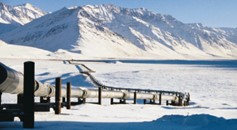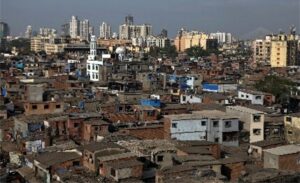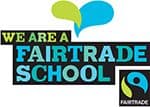S3 Geography
Course Overview
Why study Geography?
The study of geography introduces candidates to our changing world, its human interactions and physical processes. Learners develop the knowledge and skills to enable them to contribute to their local communities and wider society.
The study of geography fosters positive life-long attitudes of environmental stewardship, sustainability and global citizenship. Practical activities, including fieldwork, provide opportunities for candidates to interact with their environment.
Courses we cover in S3:
Natural Regions: Alaska, USA
 Within this unit pupils investigate and describe a natural environment different to their own, in terms of climate, physical features and living things.
Within this unit pupils investigate and describe a natural environment different to their own, in terms of climate, physical features and living things.
Pupils also investigate the impact of human activity in this region and consider ways in which these impacts can be managed sustainably.
Urban Environments: Dharavi, India and Edinburgh, UK
In this Unit pupils learn about two different urban environments and compare the different problems that they each face. They then study the different solutions to the problems of each location. When studying Edinburgh pupils complete a fieldwork investigation to gain a deeper understanding to the coursework studied in class.
Glaciation
Pupils will research how different glacial environments around the UK are formed. Land uses, conflicts and management strategies will be considered through a case study of the Cairngorms and Loch Lomond National Parks.
Tourism
- Causes of mass tourism
- Impacts of mass tourism
- Ecotourism
Methodology
A variety of active learning and teaching strategies will be involved, from teacher led explanation and discussion to individual work; paired work; group work; fieldwork; researching and presenting information. Pupils interpret and analyse a variety of geographical sources of information and employ strategies of self and peer evaluation of work produced.
iPads are used thoughtfully to enhance learning and raise attainment.
Assessment
We use a variety of assessment approaches to allow learners to demonstrate their knowledge and understanding, skills, attributes and capabilities in each subject.
- Observing day-to-day learning within the classroom.
- Coursework, including end-of-unit tests.
- Project work where pupils lead their learning.
- Teams submissions including homestudy and quizzes
- Peer and self evaluation.
Assessment is an integral part of our teaching and learning process and we recognise that regular positive and constructive feedback is very important to help pupils progress. As a result, learners receive high-quality feedback to support their understanding of their progress in learning and what they need to do to improve.
Recording & Reporting
All pupil assessments are routinely graded and recorded by the teacher and the results are stored centrally, these results are used by staff to track the progress of the individuals and ensure that their needs are being met.
Pupils receive written feedback and next steps as well as verbal feedback to ensure that pupils know what level they are working at and understand their next steps to allow them to progress.
Staff report formally to parents via Tracking Reports and at parent consultations as per the school calendar.
All Staff
S3 CfE
This course consists of 2 periods per week for each S3 class. All homework is posted on Microsoft Teams.
Term 1: August to October (Earthquakes)
- Exam-style questions (Causes, Impacts & Solutions)
- Evidence of revision
Term 2: October to December (Urban Environments in Less Economically Developed Countries (LEDCs & Coastal Environments)
Urban Environments in LEDCS
- Exam-style questions (Problems & Solutions)
- Assessment resource sheet
Coastal Environments
- Exam-style question (Formation of a coastal feature)
Term 3: January to March (Tundra)
- Animal/ plant adaptation project
- Exam-style questions (Use/misuse of the land. Impacts & Solutions)
- Evidence of revision
Term 4: April to May (Tourism)
- Peer marked skills question practice
Resources
CIA Country Fact file-
https://www.cia.gov/library/publications/the-world-factbook/
Tundra:
http://www.bbc.co.uk/nature/habitats/Tundra
National Geographic:https://www.nationalgeographic.com/environment/habitats/tundra-biome/
Climate types for kids:
https://sites.google.com/site/climatetypes/tundra
BBC Bitesize: https://www.bbc.co.uk/education/guides/zpkbp39/revision
Glaciation
https://www.bbc.co.uk/education/guides/zf64jxs/revision






